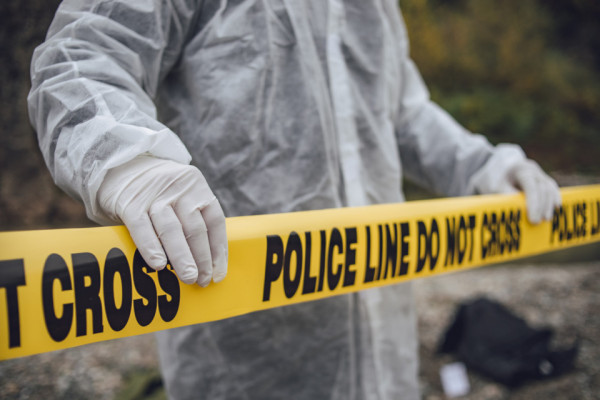
University of Bolton, Deane Road, Bolton. BL3 5AB
Tel:
Email:


“At the University of Bolton, we take great pride in providing a quality, supportive learning environment for our students.”
Professor George E Holmes DL | President & Vice Chancellor
“...tutors are very supportive and you’re not just a student ID number, at this university you are an individual with a name.”
Ellisse Vernon | BSc (Hons) Adult Nursing
Back to menu
Back to menu
Study with an Off-Campus Partner
Back to menu
Back to menu
University of Bolton, why we are the right choice
Location - Bolton, Greater Manchester

03/01/2023
Could you be the next Lindsay Denton? The Detective Inspector from the BBC crime drama, Line of Duty.
From 2022/23, the UK crime rate was 75.88 per 1,000, following an 8% increase since 2021. Crime scene investigators can be the first on a crime scene and play a key role in solving the case, meaning that on a daily basis, you won’t be short of action. If you’re wondering how to get into this profession, this blog explores how a BA (Hons) Crime and Criminal Justice course can help.
What is a Crime Scene Investigator?
A crime scene investigator is someone who gathers forensic evidence from crime scenes that results in the detection and prosecution of criminals. They process crime scenes using specialist techniques to capture, visualise, and recover evidence. This is where the crime scene investigator role is becoming increasingly popular as interest in forensic roles has increased over recent years. This is due to technological advances in the field, which means that police forces have been able to utilise forensic techniques to help solve crimes.
What Does a Crime Scene Investigator Do?
As a crime scene investigator, no two days will ever be the same. You could be expected to:
- Respond to police calls to attend crime scenes
- Preserve crime scenes so that all evidence is accurate and doesn’t get contaminated
- Work with the police; including the National Counter Terrorism Security Office, the British Transport Police, forensic scientists, and other organisations like the National Crime Agency
- Take the lead in finding evidence that could support in later criminal cases
- Take photos and video the crime scene
- Use scientific methods to collect biological evidence
- Attend court cases to give evidence at trials
 How to Become a Crime Scene Investigator
How to Become a Crime Scene Investigator
Crime is evolving, so there’s never been a more important time to make a difference in the crime and criminal justice sector. If you’re looking to start your journey, graduates are known for receiving the higher end of the pay scale for the role. Sound good? This is where the University of Bolton’s BA (Hons) Crime and Criminal Justice course can help.
By investigating the approaches applied to crime, deviance, and victimisation, our industry-experienced lecturers are there to support you in developing the skills to effectively work with offenders, crime intelligence, investigation and interviewing, crime scene management, preparing for court, and presenting a case profile.
Throughout their studies, our students gain a thorough understanding of the causes of crime and criminal behaviour, as well as how to combat crime in a way that helps safeguard the public and support victims. If you’re wondering why Bolton would be the right choice for you, look at our key course highlights:
- Our criminology courses have been voted first in the Northwest for Teaching Quality*
- Students get to learn interviewing techniques from experienced specialists
- We work closely with organisations like the College of policing, the Crown Prosecution Service, Public Health England, the Home Office, and many more. This means that our course offers a holistic view of crime and criminal justice in the UK
- The course covers the four knowledge modules required by the National Offender Management Service as prerequisites for Probation Officer training. We’ll encourage you to gain the relevant experience necessary and can advise and support you as you approach potential placement providers
- We offer opportunities for you to visit criminal justice workplaces, such as prisons, law courts, police stations and rehabilitation centres so you can gain a first-hand understanding of these environments and how they operate
- We work with experienced forensics professionals who have been responsible for training scenes of crime officers for the police and offer you the chance to visit crime scene training locations to learn about securing crime scenes and evidence collection and preservation
Think you have what it takes to become a great crime scene investigator? Click here to view the full course details and find out how you can start your criminal justice journey.
For more information, please contact us at enquiries@bolton.ac.uk or call us on 01204 903903.
Come and enjoy #UniAsItShouldBe; where students needs come first!
*The Times and Sunday Times, Good University Guide – Teaching Quality – Northwest - 2022